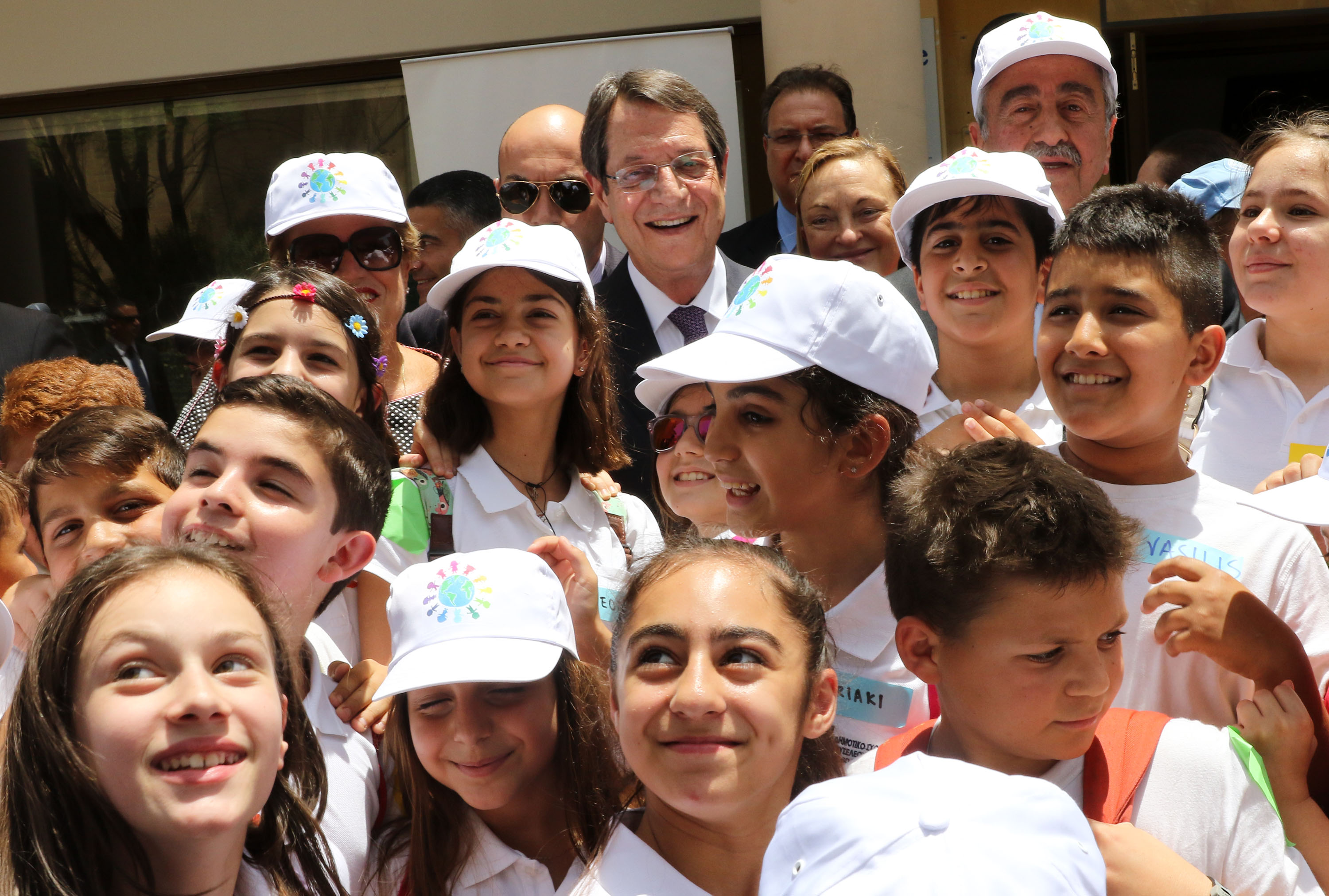by Oya Kocak Barcin and Christoforos Dimitriou
We, Oya and Christoforos know each other through our work. We live on opposite sides of the divide in Cyprus, have different backgrounds that link each one of us to the island and speak different languages (with quite a number of common words though). Despite all the differences, there are common concerns and efforts we need to focus on and there are some things we would like to say to all of you, the younger members of our respective families and your friends.
You have finished school for this year and are enjoying the summer break. You are growing up on the same island, enduring the same heat of this summer. You haven’t met each other. It’s not compulsory to ever meet. It’s not prohibited to meet either.
This year marks anniversaries for Cyprus: 1964, 1974. This year also marks 20 years from 2004. You have been taught these anniversaries at school. Actually, each of you has been taught some of them, not in the same order, not with the same words. You should not forget these anniversaries; but first you should learn about them by asking questions and doubting whether you know the truth and challenging us when we talk to you about them. The more certain we appear when we talk to you about the past, the more you should challenge us.
While learning about the past, don’t forget the present. Explore the island. To start with, find out for yourselves whether it is really an island. Visit all coasts, to be sure you can choose the best beach for you and your friends depending on the time of the day and the direction of the wind. Respect the sea. Explore and respect the land too, the mountains, the plains, the rivers, the water reservoirs, the plants and the animals; all of them. For there are no divides in nature. Remember that there are no divides in climate change and natural disasters either. Your generation will need to be better prepared for extreme weather phenomena and to prevent and contain disasters such as wildfires and floods. Cyprus may even need external assistance for this. But first it should be able to fully use all its internal resources.
So what about the Cyprus problem? Could 2024 mark the beginning of a new and successful round of negotiations? To be honest with you, we don’t know. What we do know is that we, as well as quite a few other people on the island and abroad, are in contact with each other trying to find solutions to everyday issues affecting both sides of the divide. We do this in our professional capacity or through citizens’ initiatives. For instance, we are working towards making bank transfers across the divide possible, so that legitimate transactions can be settled safely. Making energy production cleaner and protecting the environment across the island is important too. Ensuring that alerts for dangerous products or information on side effects of prescribed drugs can swiftly cross the divide, is also something worth working on. It may save lives, on either side.
Over the years there have been people who worked together across the divide, for instance to ensure electricity supply or to preserve cultural heritage sites and traditional handicraft. As we speak, there are people who take care of Nicosia’s common sewage treatment plant, there are people with business and social ties across the divide, as well as people recording and investigating human rights violations all over Cyprus. There are also people from both sides who are devoted to the treatment of humanity’s wounds: the Committee on Missing Persons and all those who assist them.
All this common work improves life on the island, now and in the future, towards a settlement of the Cyprus problem. There is a view that any cooperation across the divide should be suspended until the Cyprus problem is settled. We don’t share this view because it piles up risks for your generation and makes it harder for any problem to be solved. This view certainly cannot protect you from climate change: wildfires and floods will probably intensify in the coming years irrespective of when a settlement to the Cyprus problem is found. This view also doesn’t encourage your generation to continue living in Cyprus, since it doesn’t lead to better conditions where there would be fewer quarrels and more gatherings, less fear and distrust and more joy and prosperity.
This letter is not exactly a light summertime read. We do believe though that it is better for you to know about the risks and try to prevent them than sit back and expect them to happen. And don’t forget that the whole Cyprus is your country: explore, respect and love it.
Oya Kocak Barcin works as a programme manager at the European Commission’s Cyprus Settlement Support Unit. Christoforos Dimitriou works as a legal counsel at the Central Bank of Cyprus. The views expressed are those of the authors







Click here to change your cookie preferences